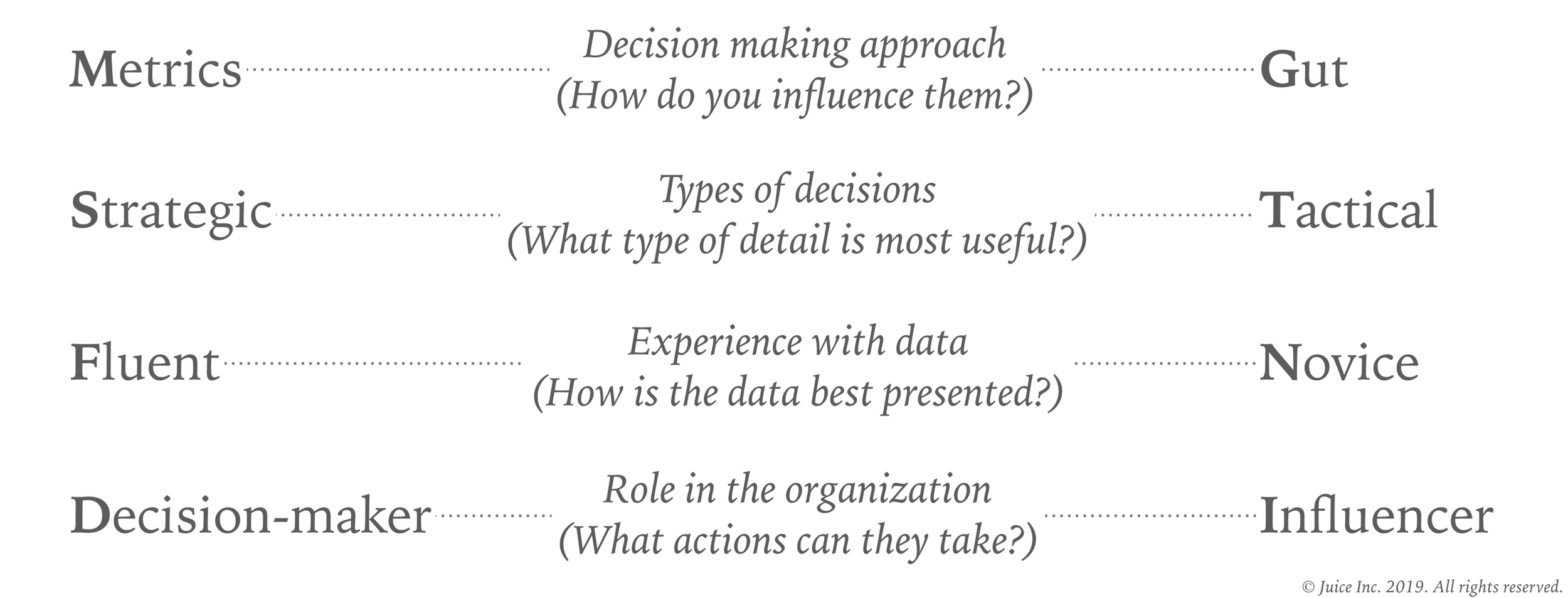With all the talk about Data Literacy (led by folks like @Ben Jones, @Jordan Morrow, @Valerie Logan) and/or Data Fluency (👀@Dalton Ruer), the time is right for a more rigorous methodology for understanding the audiences for data dialogue.
Which got me thinking: What if there was a Myers Briggs-style personality type indicator for data personalities? It could be used to predict how someone is going to respond to data when it is presented, and by extension, what are the best ways to get the desired outcome.
I’d like to share a framework for profiling Data Personalities. Like Myers Briggs, it has four dimensions on which an individual can exists on a spectrum between two extremes.
Here’s how I think about each dimension:
Decision-making approach. How does this person integrate data into their decision-making process? Do they lean on data to guide their thinking or are they more likely to depend on their experience and instinct?
Types of decisions. Is this person in a role where they make decisions that have a long-term and strategic perspective, balancing more uncertainty and more sources of information? Alternatively, are most of this person’s decisions more real-time, tactical, or operational in nature?
Experience with data. Does this person have a high level of data literacy — comfort analyzing, communicating, and interpreting data? Or are you dealing with someone who is relatively novice in working with data and who may express discomfort with data?
Role in the organization. Is this person in a role where they can make decision directly from the data they are presented? Alternatively, will this person take your data and use it influence other people?
As a data author intent on encouraging smarter decisions, there is nothing more important than understanding your audience. The Data Personality Profile (DPP) is a good place to start. Now we just need some data.

